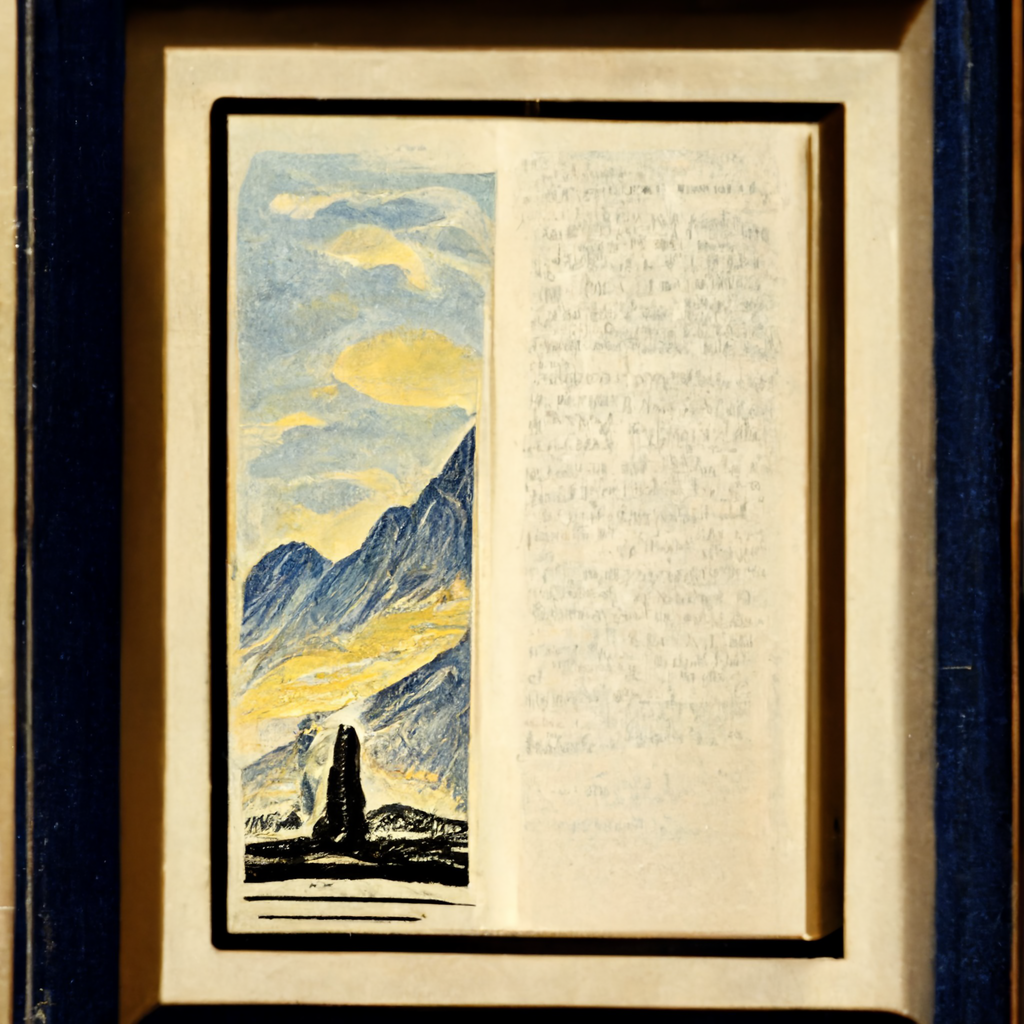Dilʾokian (/diːlˈʔok/)
Dilʾokian is one of the languages of Cury.
ru a xāh šā ru hotšā ru šand ru zarb ʾum est zor
Pronunciation: /ruː æ xɒːh ʃɒː ruː hotˈʃɒː ruː ʃænd ruː zærb ʔuːm est zor/
Dilʾokian word order: and he stood holding his hat and turned his wet face the wind to
Vowel inventory: e iː o uː æ ɒː
Syllable structure: Custom defined ?
Stress pattern: Ultimate — stress is on the last syllable ? Spelling rules:
Adjective order: Adjectives are positioned before the noun.
Adposition: postpositions ?
Uses of definite article that differ from English:
Dilʾokian uses an affix for imperfective:
Dilʾokian uses an affix for the perfect aspect:
2 - žmat
3 - qang
4 - tu
5 - ta
6 - or
7 - re
8 - žlo
9 - šus
10 - sān
Hundred - ʾi
Thousand - hābumr
Adjective → noun (the quality of being [adj]) = If starts with vowel: Prefix r-
Else: Prefix ræ-
Adjective → verb (to make something [adj]) = Prefix uː-
Noun → adjective (having the quality of [noun]) = Prefix ɒː-
Noun → adjective relating to noun (e.g. economy → economic) = Prefix bɒː-
Noun to verb = If starts with vowel: Prefix ʃ-
Else: Prefix ʃe-
Verb → adjective (result of doing [verb]) = Prefix ke-
Tending to = If starts with vowel: Prefix ʒ-
Else: Prefix ʒe-
Verb → noun (the act of [verb]) = If starts with vowel: Prefix x-
Else: Prefix xæ-
Verb → noun that verb produces (e.g. know → knowledge) = If starts with vowel: Prefix f-
Else: Prefix fæ-
One who [verb]s (e.g. paint → painter) = Prefix fæ-
Place of (e.g. wine → winery) = If starts with vowel: Prefix r-
Else: Prefix ræ-
Diminutive = Prefix o-
Augmentative = Prefix æ-
Maker = Prefix luː-
Natively known as: dilʾok /diːlˈʔok/
...and he stood holding his hat and turned his wet face to the wind...ru a xāh šā ru hotšā ru šand ru zarb ʾum est zor
Pronunciation: /ruː æ xɒːh ʃɒː ruː hotˈʃɒː ruː ʃænd ruː zærb ʔuːm est zor/
Dilʾokian word order: and he stood holding his hat and turned his wet face the wind to
Spelling & Phonology
Consonant inventory: b d f g h j k l m n p q r s t v x z ɣ ʃ ʒ ʔ ʤ ʧ| ↓Manner/Place→ | Bilabial | Labiodental | Alveolar | Palato-alveolar | Palatal | Velar | Uvular | Glottal |
|---|---|---|---|---|---|---|---|---|
| Nasal | m | n | ||||||
| Stop | p b | t d | k g | q | ʔ | |||
| Affricate | ʧ ʤ | |||||||
| Fricative | f v | s z | ʃ ʒ | x ɣ | h | |||
| Approximant | j | |||||||
| Trill | r | |||||||
| Lateral approximant | l |
| Front | Back | |
|---|---|---|
| High | iː | uː |
| High-mid | e | o |
| Near-low | æ | |
| Low | ɒː |
Stress pattern: Ultimate — stress is on the last syllable ? Spelling rules:
| Pronunciation | Spelling |
|---|---|
| ʔ | ʾ |
| j | y |
| ʤ | j |
| ʧ | č |
| ʒ | ž |
| ʃ | š |
| ɣ | q |
| æ | a |
| ɒː | ā |
| uː | u |
| iː | i |
Grammar
Main word order: Subject Verb Object (Prepositional phrase). “Mary opened the door with a key” turns into Mary opened the door with a key.Adjective order: Adjectives are positioned before the noun.
Adposition: postpositions ?
Nouns
| Singular | No affix lumr /luːmr/ dog |
| Plural | Change all X* to __ lumrlumr /luːˈmrluːmr/ dogs |
Articles
| Definite | čād /ʧɒːd/ the |
| Indefinite | žlest /ʒlest/ a, some |
- Used to talk about countable nouns in general: English’s ‘I like cats’ would translate to ‘I like the cats’
- Not used for non-specific mass (uncountable) nouns: non-specific means ‘Would you like some (any) tea?’ whereas specific means ‘Some tea (a specific amount) fell off the truck’
Pronouns
| 1st singular | vā /vɒː/ I, me, mine |
| 2nd singular | ard /ærd/ you, yours |
| 3rd singular masc | a /æ/ he, him, his, it, its |
| 3rd singular fem | ži /ʒiː/ she, her, hers, it, its |
| 1st plural | bal /bæl/ we, us, ours |
| 2nd plural | hā /hɒː/ you all, yours (pl) |
| 3rd plural | la /læ/ they, them, theirs |
Possessive determiners
| 1st singular | hav /hæv/ my |
| 2nd singular | košt /koʃt/ your |
| 3rd singular masc | ru /ruː/ his |
| 3rd singular fem | ho /ho/ her |
| 1st plural | qā /qɒː/ our |
| 2nd plural | žem /ʒem/ your (pl) |
| 3rd plural | lu /luː/ their |
Verbs
| 1st person | 2nd person | 3rd person | |
|---|---|---|---|
| Present | Prefix uː- ukayr /uːˈkæjr/ (I/we) learn | Prefix nɒː- nākayr /nɒːˈkæjr/ (you/you all) learn | Prefix iː- ikayr /iːˈkæjr/ (he/she/it/they) learn |
| Past | Prefix ɒː- ākayr /ɒːˈkæjr/ (I/we) learned | If starts with vowel: Prefix ɒːmk- Else: Prefix ɒːmkæ- āmkakayr /ɒːmkæˈkæjr/ (you/you all) learned | If starts with vowel: Prefix p- Else: Prefix pæ- pakayr /pæˈkæjr/ (he/she/it/they) learned |
| Remote past | Prefix e- ekayr /eˈkæjr/ (I/we) learned (long ago) | If starts with vowel: Prefix v- Else: Prefix viː- vikayr /viːˈkæjr/ (you/you all) learned (long ago) | Prefix qɒː- qākayr /qɒːˈkæjr/ (he/she/it/they) learned (long ago) |
| Future | Prefix liː- likayr /liːˈkæjr/ (I/we) will learn | If starts with vowel: Prefix ɒːʤ- Else: Prefix ɒːʤæ- ājakayr /ɒːʤæˈkæjr/ (you/you all) will learn | Prefix de- dekayr /deˈkæjr/ (he/she/it/they) will learn |
Imperfective aspect
The ‘imperfective’ aspect refers to ongoing actions, such as I am learning and habitual actions, such as I learn (something new every day).Dilʾokian uses an affix for imperfective:
| Imperfective | Prefix e- ekayr /eˈkæjr/ learns/is learning |
Perfect aspect
The perfect aspect in English is exemplified in ‘I have read this book’, which expresses an event that took place before the time spoken but which has an effect on or is in some way still relevant to the present.Dilʾokian uses an affix for the perfect aspect:
| Perfect | Prefix te- tekayr /teˈkæjr/ have learned |
Numbers
Dilʾokian has a base-10 number system: 1 - fam2 - žmat
3 - qang
4 - tu
5 - ta
6 - or
7 - re
8 - žlo
9 - šus
10 - sān
Hundred - ʾi
Thousand - hābumr
Derivational morphology
Adjective → adverb = Prefix iː-Adjective → noun (the quality of being [adj]) = If starts with vowel: Prefix r-
Else: Prefix ræ-
Adjective → verb (to make something [adj]) = Prefix uː-
Noun → adjective (having the quality of [noun]) = Prefix ɒː-
Noun → adjective relating to noun (e.g. economy → economic) = Prefix bɒː-
Noun to verb = If starts with vowel: Prefix ʃ-
Else: Prefix ʃe-
Verb → adjective (result of doing [verb]) = Prefix ke-
Tending to = If starts with vowel: Prefix ʒ-
Else: Prefix ʒe-
Verb → noun (the act of [verb]) = If starts with vowel: Prefix x-
Else: Prefix xæ-
Verb → noun that verb produces (e.g. know → knowledge) = If starts with vowel: Prefix f-
Else: Prefix fæ-
One who [verb]s (e.g. paint → painter) = Prefix fæ-
Place of (e.g. wine → winery) = If starts with vowel: Prefix r-
Else: Prefix ræ-
Diminutive = Prefix o-
Augmentative = Prefix æ-
Maker = Prefix luː-











Comments